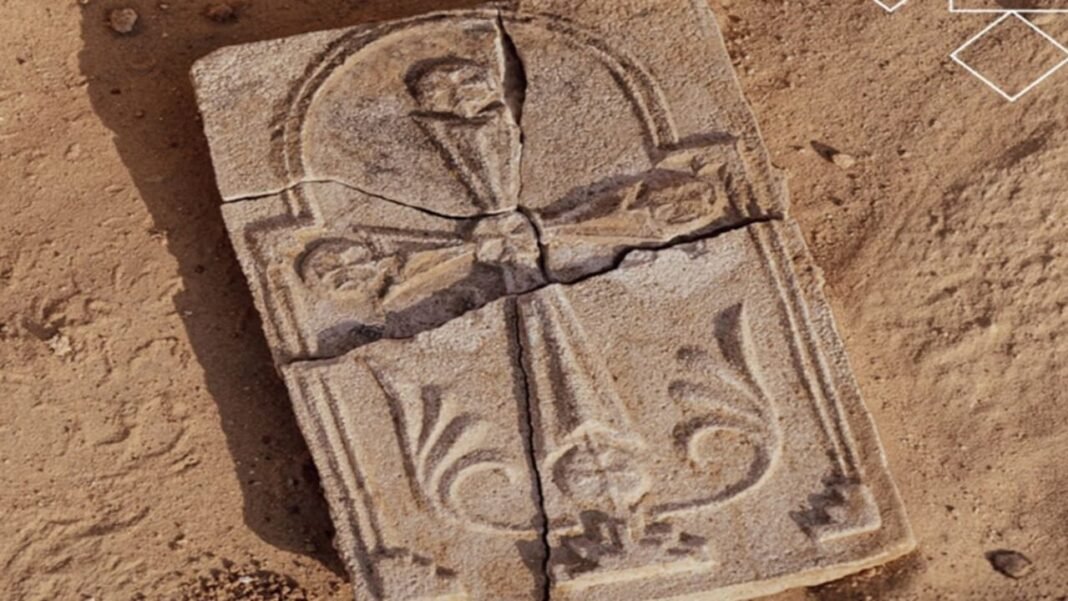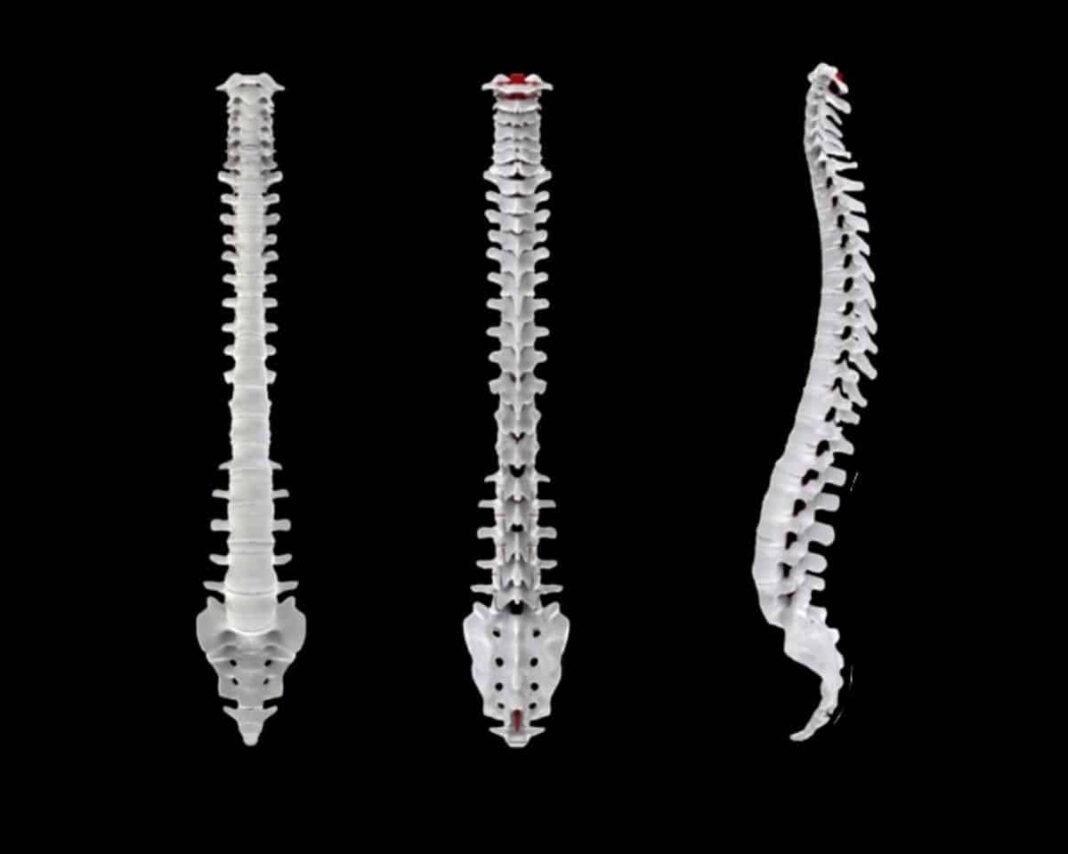
Archaeologists on Sir Bani Yas Island, Abu Dhabi, have uncovered a well-preserved 1,400-year-old Christian cross during the island’s first major excavation in three decades, a discovery officials say sheds new light on early Christianity in the southern Gulf.
The carved cross, about 27 centimeters long (10.6 inches), 17 centimeters wide (6.7 inches), and roughly 2 centimeters thick (0.8 inches), was found face-down in the floor of a room interpreted as part of a monastic complex. The object was molded in gypsum and decorated in relief with floral motifs, dot patterns, and a stepped base that archaeologists say echoes designs from Christian communities in Iraq and Kuwait associated with the Eastern Church.
“When we turned it, we were surprised to see a beautifully preserved cross. It was one of the most important discoveries of this year’s mission,” said Emirati archaeologist Hager Al Menhali, who is part of the team working under the Abu Dhabi Department of Culture and Tourism. Officials said the cross will undergo conservation and scientific study, including carbon dating, to better define its age and context.
The Discovery of the ancient Christian cross in Abu Dhabi is the result of work that started in January 2025
The discovery comes amid a renewed field season on the island that began in January 2025 following rescue work the previous year. Excavations on Sir Bani Yas, which is located roughly 170 kilometers (about 106 miles) southwest of Abu Dhabi city, began in 1992 and previously revealed a church and monastery complex that has been protected and interpreted for visitors. Decades of research show continuous human activity on the island and point to a Christian community flourishing there in the seventh and eighth centuries CE.
Mohamed Khalifa Al Mubarak, chairman of the Department of Culture and Tourism in Abu Dhabi, said the cross “testifies to the values of enduring coexistence and cultural diversity in the UAE” and that such finds strengthen ties to the nation’s past.
History unearthed by the DCT Abu Dhabi team! An ancient cross from a 7th-8th century monastery on Sir Bani Yas Island, our first major dig in 30 years. This discovery highlights the UAE’s legacy of peaceful co-existence. pic.twitter.com/XSP1m7Ul4y
— Department of Culture and Tourism – Abu Dhabi (@dctabudhabi) August 19, 2025
A small on-site exhibition already displays glass vessels, a stamp seal, and decorative gypsum fragments. The newly recovered cross will be added to that collection after conservation, officials said.
Researchers say the evidence suggests cultural exchanges across the Gulf during the seventh and eighth centuries.
Archaeologists said the stylistic parallels with crosses from Iraq and Kuwait suggest long-distance cultural and artistic exchanges across the Gulf during the seventh and eighth centuries. The plastered cross was recovered from a cluster of small courtyard houses north of the main church that researchers interpret as hermitages for monks or refuges for pilgrims and wealthy Christians seeking retreat.
Researchers also noted evidence that early Christians on Sir Bani Yas coexisted with early Muslim communities before the monastery was abandoned in the eighth century. The site today forms part of a protected wildlife reserve where visitors can walk a monastery trail and view a new multi-faith church inspired by the ancient complex. Officials said future research will aim to illuminate daily monastic life on the island and the trade networks reflected in the artifacts.
The renewed campaign on Sir Bani Yas is part of Abu Dhabi’s broader effort to conserve and interpret the emirate’s archaeological heritage, officials said, highlighting the role such discoveries play in telling a more diverse story of the region’s past.


